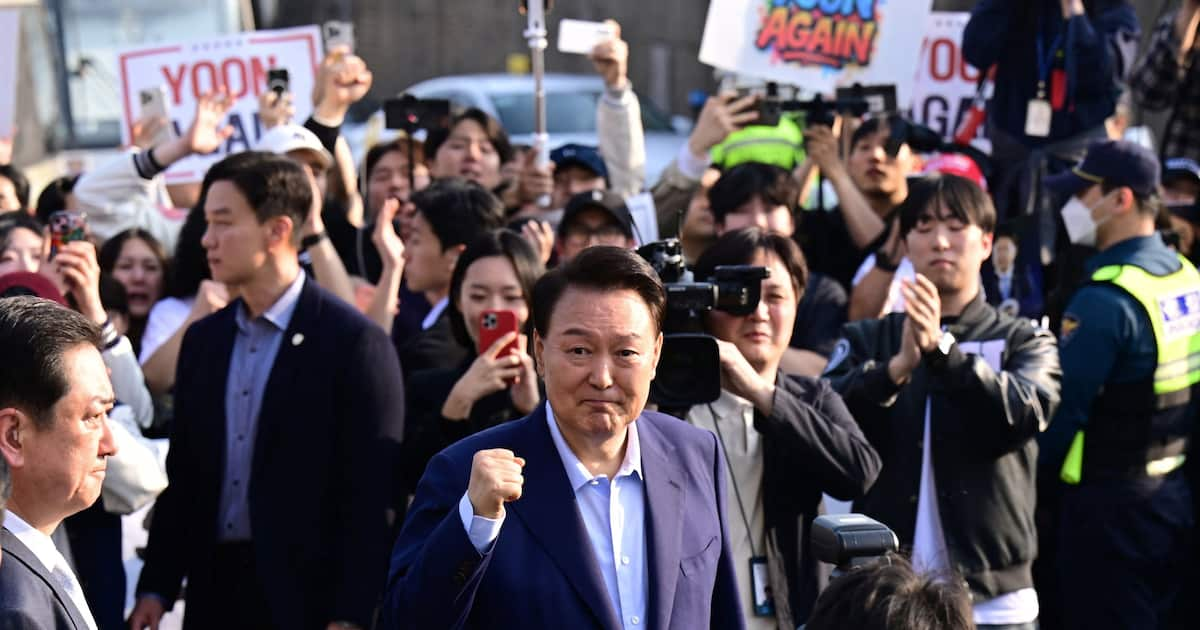Yoon's Shadow: The Future of Korean Conservatism
President Yoon Suk-yeol's presidency is casting a long shadow over the future of Korean conservatism. His approval ratings, fluctuating wildly, reflect a deep division within the party and broader Korean society. This article delves into the current state of Korean conservatism, exploring the challenges and potential trajectories in the post-Yoon era.
The Yoon Presidency: A Divisive Force
Yoon's election victory in 2022 marked a significant shift in Korean politics, bringing the conservative People Power Party (PPP) back to power after a five-year hiatus. However, his presidency has been far from smooth sailing. His policies, often perceived as elitist and out of touch with the concerns of ordinary citizens, have faced significant pushback.
Key Controversies and Their Impact:
- Economic Policies: Yoon's emphasis on deregulation and pro-business policies have alienated segments of the population who feel left behind by economic growth. This has fueled criticism and contributed to declining public support.
- Foreign Policy Stance: While strengthening the alliance with the United States has been a cornerstone of his administration, some aspects of his foreign policy approach have drawn criticism, particularly regarding relations with North Korea and China.
- Internal Party Divisions: The PPP has been plagued by internal divisions and power struggles, weakening its ability to present a united front and hindering effective governance. This factionalism poses a significant challenge to the party's future.
These controversies have significantly impacted Yoon's approval ratings, leaving many questioning the future direction of Korean conservatism.
The Future of Korean Conservatism: Challenges and Opportunities
The post-Yoon era presents both significant challenges and opportunities for Korean conservatism. The party needs to address several critical issues to regain public trust and relevance.
Rebuilding Public Trust:
- Economic Inclusivity: A key challenge lies in addressing the concerns of those left behind by economic growth. Conservatives need to articulate a vision of economic prosperity that benefits all segments of society, not just the wealthy elite.
- Addressing Social Issues: The party must engage with critical social issues like income inequality, housing affordability, and youth unemployment in a way that resonates with younger generations.
- Promoting Internal Unity: Overcoming internal divisions and presenting a united front is crucial to regaining public trust and forming a cohesive political strategy.
Potential Trajectories:
- A Moderate Shift?: Some analysts predict a potential shift towards a more moderate form of conservatism, aiming to bridge the gap with centrist voters.
- Ideological Reinvention?: Others suggest a need for a fundamental re-evaluation of core conservative principles to adapt to the changing social and political landscape of modern Korea.
- Rise of New Leadership: The emergence of new, charismatic leaders within the PPP will be crucial in shaping the party's future direction and public image.
Conclusion: Navigating Uncertain Waters
The future of Korean conservatism hinges on the ability of the PPP to address its internal challenges and rebuild public trust. The legacy of the Yoon presidency will undoubtedly shape the party's trajectory in the years to come. Whether it embraces moderation, undergoes ideological reinvention, or remains entrenched in its current trajectory will ultimately determine its success in navigating the uncertain waters of Korean politics. The upcoming elections will be a critical test of the party's ability to adapt and regain its footing.
Keywords: Yoon Suk-yeol, Korean conservatism, People Power Party, Korean politics, South Korea, election, approval ratings, economic policy, foreign policy, internal party divisions, future of conservatism, political analysis.
Related Articles: (Link to hypothetical articles on similar topics – Remember to replace with actual links if publishing)
- [Link to article about Korean Elections]
- [Link to article about South Korean Economy]
- [Link to article about North-South Korean relations]
Call to Action: What are your thoughts on the future of Korean conservatism? Share your opinions in the comments below!
